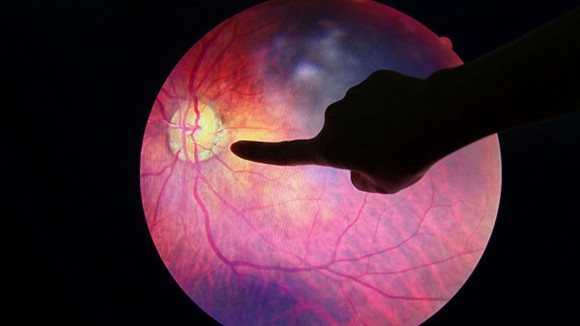 Giuseppe Querques is an Associate Professor at University Vita-Salute, IRCCS San Raffaele Scientific Institute, Milan, Italy. His main topics are Medical Retina and ophthalmic surgery. He has contributed to more than 500 peer-reviewed articles and over 20 books and book chapters as Editor/Author published mainly in the areas of Medical Retina (age-related macular degeneration, retinal vascular diseases, hereditary retinal diseases, ophthalmic genetics). Dr Querques has been an Editorial Board Member for Scientific Reports since 2019.
Giuseppe Querques is an Associate Professor at University Vita-Salute, IRCCS San Raffaele Scientific Institute, Milan, Italy. His main topics are Medical Retina and ophthalmic surgery. He has contributed to more than 500 peer-reviewed articles and over 20 books and book chapters as Editor/Author published mainly in the areas of Medical Retina (age-related macular degeneration, retinal vascular diseases, hereditary retinal diseases, ophthalmic genetics). Dr Querques has been an Editorial Board Member for Scientific Reports since 2019.
 Jeong Hun Kim is a Professor in Seoul National University College of Medicine and a clinician-scientist, who earned his MD in 1998 and Ph.D in 2006 from the Seoul National University. As a clinician (ophthalmology), he is a specialist in inherited retinal disease (IRD) as well as variable congenital and pediatric eye diseases including retinoblastoma and retinopathy of prematurity. Also, he has led a translational research laboratory of Fight against Angiogenesis-Related Blindness (FARB) Lab since 2009, where he has developed variable therapeutic candidates including small molecule, antibody, peptide, polymer, gene therapy, and genome editing targeting to retinopathy (AMD, diabetic retinopathy as well as IRD). Prof Kim has been an Editorial Board Member for Scientific Reports since 2017.
Jeong Hun Kim is a Professor in Seoul National University College of Medicine and a clinician-scientist, who earned his MD in 1998 and Ph.D in 2006 from the Seoul National University. As a clinician (ophthalmology), he is a specialist in inherited retinal disease (IRD) as well as variable congenital and pediatric eye diseases including retinoblastoma and retinopathy of prematurity. Also, he has led a translational research laboratory of Fight against Angiogenesis-Related Blindness (FARB) Lab since 2009, where he has developed variable therapeutic candidates including small molecule, antibody, peptide, polymer, gene therapy, and genome editing targeting to retinopathy (AMD, diabetic retinopathy as well as IRD). Prof Kim has been an Editorial Board Member for Scientific Reports since 2017.
 Xiaolai Zhou is a Professor of Ophthalmology and Principal Investigator of the Neuro-Ophthalmology Lab in the State Key Laboratory of Ophthalmology, Zhongshan Ophthalmic Center, Sun Yat-sen University (SYSU). His academic interests include 1) Disease mechanism, bio-markers, and treatment of neuromyelitis optica spectrum disorder (NMOSD); 2) Molecular mechanism of lysosomal dysfunction related-neurodegenerative diseases such as frontotemporal lobar degeneration (FTLD) and retinal degeneration caused by PGRN mutations; 3) Gene therapy for inherited retinal degeneration and optic nerve atrophy. Prof Zhou has been an Editorial Board Member for Scientific Reports since 2021.
Xiaolai Zhou is a Professor of Ophthalmology and Principal Investigator of the Neuro-Ophthalmology Lab in the State Key Laboratory of Ophthalmology, Zhongshan Ophthalmic Center, Sun Yat-sen University (SYSU). His academic interests include 1) Disease mechanism, bio-markers, and treatment of neuromyelitis optica spectrum disorder (NMOSD); 2) Molecular mechanism of lysosomal dysfunction related-neurodegenerative diseases such as frontotemporal lobar degeneration (FTLD) and retinal degeneration caused by PGRN mutations; 3) Gene therapy for inherited retinal degeneration and optic nerve atrophy. Prof Zhou has been an Editorial Board Member for Scientific Reports since 2021.

